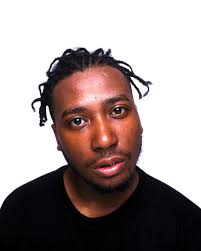
Ol’ Dirty Bastard, the larger-than-life founding member of Wu-Tang Clan, left an undeniable mark on hip-hop. Known for his raw energy and unpredictable style, his career was both legendary and tumultuous. But behind the fame, struggles with addiction and legal troubles overshadowed his success. On November 13, 2004, just two days before his 36th birthday, Ol’ Dirty Bastard—born Russell Tyrone Jones—collapsed and died from a drug overdose. His passing shook the hip-hop world, raising questions about addiction, mental health, and the pressures of fame.
The Rise of a Hip-Hop Legend
ODB, as he was widely known, co-founded Wu-Tang Clan alongside his cousins RZA and GZA. Their 1993 debut album, Enter the Wu-Tang (36 Chambers), revolutionized the hip-hop scene, blending street storytelling with martial arts philosophy. ODB stood out with his wild persona, unpredictable rhymes, and unmistakable delivery.
His solo career took off with Return to the 36 Chambers: The Dirty Version in 1995, featuring hits like “Shimmy Shimmy Ya” and “Brooklyn Zoo.” But fame came with chaos—legal troubles, erratic behavior, and increasing drug use threatened to derail his career.
Struggles with Addiction and Mental Health
Despite his success, ODB battled severe substance abuse issues. His erratic behavior and multiple arrests were often attributed to drug use and mental health struggles. He was diagnosed with schizophrenia in 2003, further complicating his personal battles.
From evading police in a stolen vehicle to storming the stage at the Grammys, his antics made headlines. While some viewed him as a misunderstood genius, others saw a man in crisis.
Final Days and Overdose
After serving time for drug-related charges, ODB was released from prison in 2003. He signed a deal with Roc-A-Fella Records and seemed poised for a comeback. But on November 13, 2004, tragedy struck. While recording at RZA’s studio in New York, he collapsed unexpectedly. Witnesses reported he had complained of chest pain earlier that day.
An autopsy later confirmed his cause of death: an accidental overdose of cocaine and tramadol, a powerful prescription opioid. His death mirrored the fate of many artists who struggled with addiction behind the scenes.
A Lasting Legacy
Despite his tragic demise, ODB’s influence on hip-hop remains profound. His fearless originality, unfiltered creativity, and unapologetic persona made him a legend. Posthumously, his life has been the subject of documentaries and tributes, highlighting both his musical genius and personal struggles.
ODB’s story is a cautionary tale—one that underscores the devastating impact of addiction and the importance of seeking help before it’s too late.
Call to action
Ol’ Dirty Bastard’s life was as unpredictable as his music. While he achieved legendary status in hip-hop, his battle with addiction cut his life tragically short. His story serves as a reminder that fame and fortune do not shield individuals from the devastating consequences of substance abuse. His music lives on, but his loss remains a tragic chapter in hip-hop history.
Read More on AddictionCured.com
📝 More Celebrity Overdose Cases:
- The Untold Story of Michael K. Williams’ Fatal Overdose
- Prince’s Tragic Overdose: How Fentanyl Stole a Music Icon
- Michael Jackson’s Tragic Overdose: The Dangerous Prescription That Ended the King of Pop’s Life
- Rapper Rich Homie Quan’s Fatal Overdose Highlights the Ongoing Opioid Crisis
- Philip Seymour Hoffman’s Tragic Overdose: The Fentanyl Crisis That Took a Hollywood Icon
- Matthew Perry’s Fatal Ketamine Overdose Highlights the Dangers of Unregulated Drug Use
 Skip to content
Skip to content
